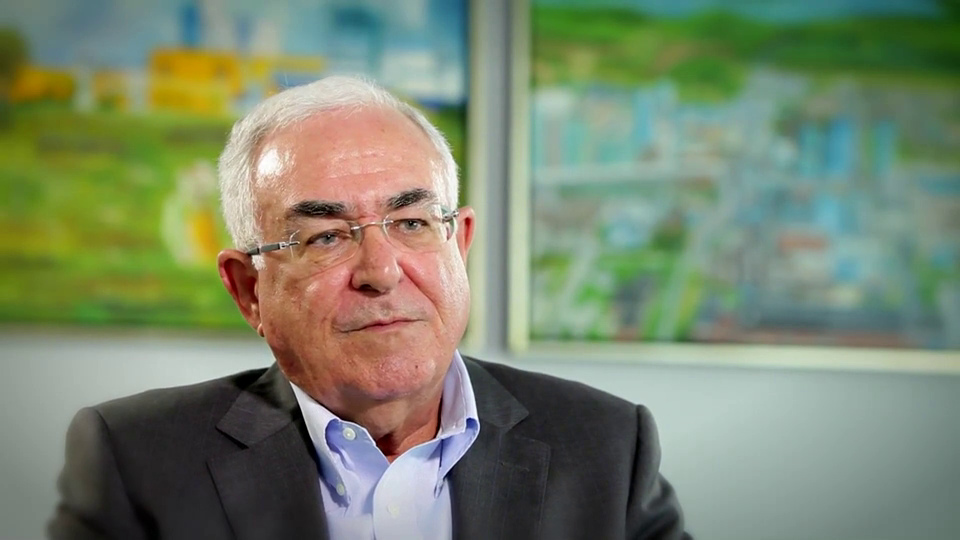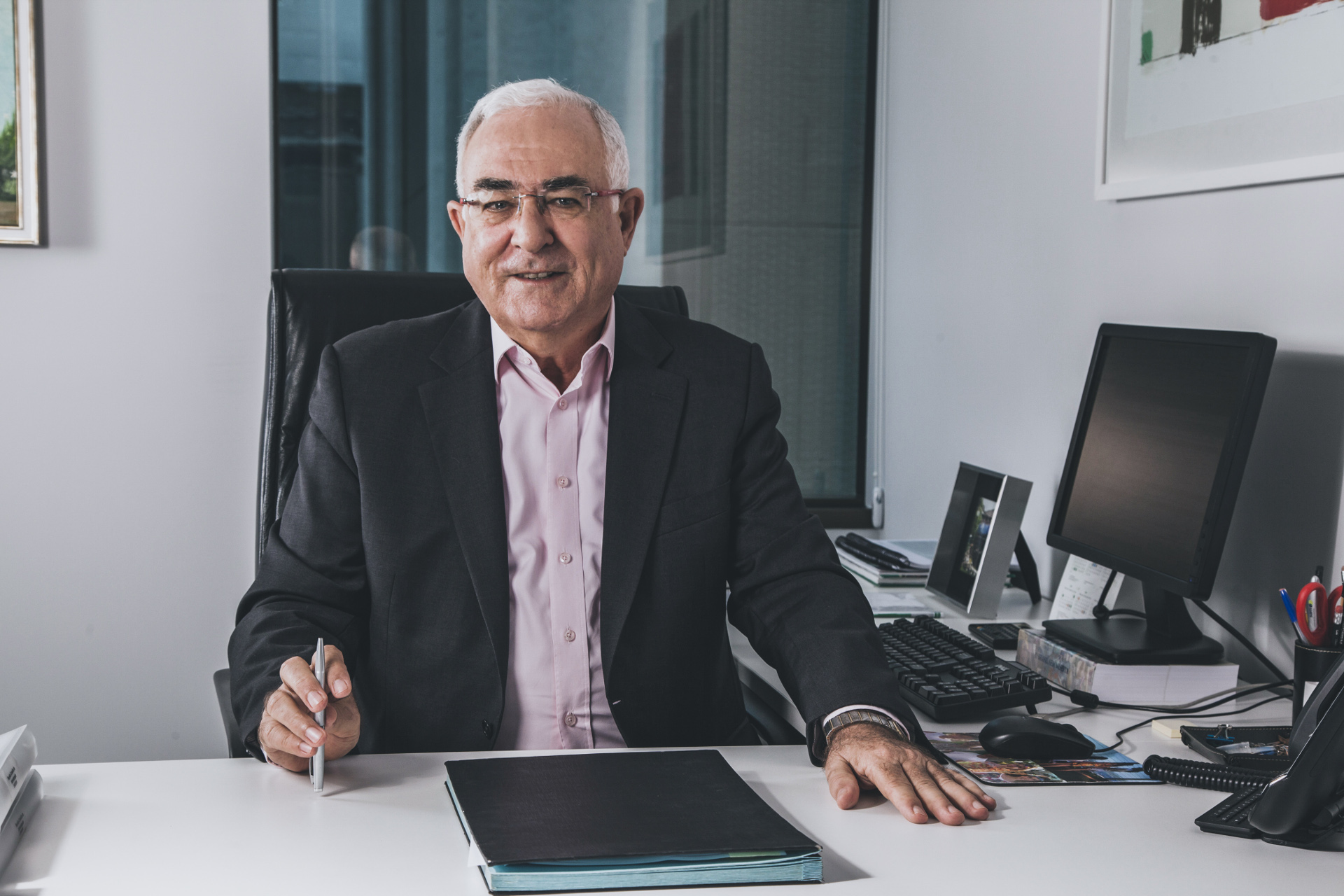Committed to change

In today's society, it is increasingly relevant that companies operate as part of the solution to social and environmental challenges. How does Fibria contribute to this?
Fibria has always positioned itself as a company dedicated to generating economic, social and environmental value from planted forests. We work with carbon sequestration and oxygen emission. Forests protect and regulate rainfall cycles, which provide greater balance to the environment, favoring biodiversity and food production. We therefore offer such a positive set of benefits that far outweigh the negative externalities that every industry has. Raw material - mineral, vegetable, or fossil - will always be necessary in the development of products, and vegetal raw materials are the only one that are sustainable over time. Therefore, the forestry-based industry stands out as part of the solution to the adversities caused by climate change.
“We carry out projects in partnership and maintain permanent dialogues with the 257 municipalities in which we operate. This is what I call Fibria's social technology”
How is social aspect addressed in Fibria's operations?
This is an important characteristic of the company: its ability to approach parts of the population that often lack access to education and health, and that have little notion of citizenship and cooperativism. Today, we carry out projects in partnership and maintain permanent dialogues with the 257 municipalities in which we operate. This is what I call Fibria's social technology, something that we took time to build and that is very difficult to be copied.

Is Fibria already perceived by its product and service diversification or is it still only seen as a pulp producer?
We are perceived for our core business, pulp, and we will continue to produce it. It was only in 2016 that we had two major challenges in this area, and we were successful in both: operating Klabin's sales contract abroad, an unprecedented model of partnership, and ensuring the smooth progress of the expansion work in Três Lagoas, which as of 2017 will deliver additional 1.95 million tons per year. People will still need paper for hygiene, books, and notebooks. However, to resolve future issues associated with the well-being of the population, we will all have to change our habits. And in this respect, Fibria invests in diversification. Our biggest challenges in the next ten, maybe twenty, years are technological. In our research and development efforts that cover nanotechnology and applications for lignin, the most advanced project is bio-oil. We are in the final phases of testing and soon we will be ready for the commercial scale.
How did Brazil's political and economic crisis impact the company?
Strictly speaking, we must make an observation: for the first time in our history, corruption is being addressed. Now, we don't have a scenario where everything else is bad and you are doing fine. To a certain extent, when the country is unstable, the exchange rate rises and favors exporting companies, such as ours. But this is within very narrow limits, since a situation of economic downturn, aggravated by corruption scandals, causes an enormous disaster in terms of reliability in Brazil.
“The company has the cash flow required to honor its commitments until 2018. We have a very competitive cost of capital, a result of the recognition by the market that we are a solid company”
And how was performance of the business?
For Fibria, 2016 was a year in which we reaffirmed our position as the world's largest pulp producer. At an extremely delicate time for investment in the country, we retained our investment grade and kept the Horizonte 2 Project strictly on schedule and on budget. We have entered a natural phase of using our indebtedness limit. And the company has the cash flow required to honor its commitments until 2018. We have a very competitive cost of capital, a result of the recognition by the market that we are a solid company that, from its origin, has established prudent and austere management, guided by policies of good governance, transparency and focus on sustainability.
What is the importance of creating the Department of Governance, Risks, and Compliance?
The creation of this new department is the result of a work that began a few years ago. One of the most difficult aspects to be addressed in the agenda of the Executive Board and Board of Directors is the analysis of what can go wrong, because the tendency is to be optimistic, especially when you have resources and competence. However, the winds can shift at any moment. Fibria has built a very widespread internal process, and is now one of the Brazilian companies that best knows how to assess risks. Each area of the business has working groups analyzing the risks of a given activity, and, together, they show us what is relevant and the likelihood of occurrence. Through a matrix, we know the company's top risks and how they are being managed. All of this requires a lot of dedication from the teams, but the results are transformative. Aspects that were major concerns in the past, such as risks in transportation of wood, pests, droughts, or abundance of rainfall, are well provisioned for thanks to our performance in Governance, Risks, and Compliance. We have always had questions about how to properly address this area. So, we established that this new department should administratively report to President Marcelo Castelli, myself, and the Statutory Audit Committee - with independent members overseeing the action in this area.
Fibria is the largest pulp producer in the world. How does the company exercise this leadership?
We have sought to exercise leadership in the forestry sector in the national and international scenario. In Brazil, we are members of the Brazil Climate, Forests, and Agriculture Coalition, which managed to bring together opposing parties to negotiate and define 17 priority agendas on land use in the country. Abroad, Fibria took the lead in some aspects, such as climate change. We are consulted even when the subject is not our field of expertise, for instance the sustainable management of the Amazon Rainforest. Fibria does not operate in the Amazon region, we do not have this expertise, but we know how to put together economic, social, and environmental structures based on our knowledge of forests, including conservation and recovery of native forests and relationship with all stakeholders. Society already realizes that we have a consistent social and environmental proposal. And our opinion is respected in matters of great relevance, such as forest certifications and land reform.
“The solution of global problems involves new technologies and behavioral changes. People need to start admiring different lifestyles and products made from new materials”
Almost a year has passed since COP21 and the Paris Agreement came into force. What has changed for the forestry sector and for Fibria?
In the short term, nothing changes. What has remained is the certainty that finally global society has realized that it has very little time to change. There is practically no chance of stabilizing the earth's temperature by two degrees Celsius. It is more likely to be between three and four degrees. Therefore, I believe that collecting signatures of countries responsible for more than 55% of global emissions in less than one year was fast. On the other hand, I do not see clear willingness on the part of governments to actually take the mitigating measures. But we must celebrate the Paris Agreement, because it makes the forestry industries realize the urgency in developing products and services aligned with a low-carbon economy. The solution of global problems involves new technologies and behavioral changes. People need to start admiring different lifestyles and products made from new materials. So I think Fibria is on the positive side of change - with an emphasis on technology and creativity, making sure that our staff is as diverse as possible, because the world of the future will be very different from ours.
